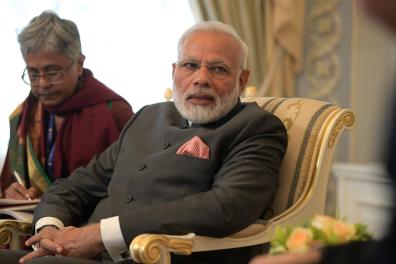Asialyst conference: "India, from the BRICS to the G20: what diplomacy for what rise to power?", October 10 at 6.30pm

Tuesday, October 10, 6:30 to 8:30 pm
Auditorium de l'Inalco
65, rue des Grands moulins 75013
Entrée sur inscription.
On September 10, the G20 presidency, which this year fell to India, ended with a bang at a summit in New Delhi attended by the leaders of the world's twenty most powerful countries (with the notable exception of the Chinese and Russian heads of state). The meeting was considered a success for the host, who succeeded in having a final declaration adopted that overlooked Russia's responsibility for the war against Ukraine, and pushed through the integration of the African Union into the G20.
This summit crowned a year in which New Delhi made considerable efforts to promote India as a leading diplomatic power. For Prime Minister Narendra Modi, his country, now the most populous on the planet, is now the natural leader of the "Global South" and must pull its weight in world affairs.
However, such a development cannot be taken for granted. Since its independence in 1947, India has certainly been a pillar of the Non-Aligned Movement under Nehru, and today it advocates reform of multilateral bodies, starting with the UN Security Council, but it often abstains on sensitive issues when it sits on them. Moreover, the old protectionist stance is still evident in its economic and trade diplomacy. India refuses to enter into multilateral agreements liberalizing trade in the Asia-Pacific region. And while the country calls on manufacturers from all over the world to come and produce in India for the rest of the world, it is simultaneously multiplying tariff hikes and administrative barriers to imports.
How can India overcome these contradictions between protectionist traditions and global ambitions? Three speakers will analyze this issue:
- Jean-Luc Racine, director of research emeritus at CNRS (Centre d'études sud-asiatiques et himalayennes, CEASH-EHESS) and senior researcher at Asia Centre
- Isabelle Saint-Mézard, University Professor at the Institut Français de Géopolitique, Université Paris 8 and Associate Researcher at IFRI. Author of Géopolitique de l'Indo-Pacifique, PUF, 2022.
- Jean-François Huchet, president of Inalco
Moderator:
- Patrick de Jacquelot : journalist at Asialyst and former correspondent for Échos in India.
Contacts: contact@asialyst.com; evenementiel@inalco.fr